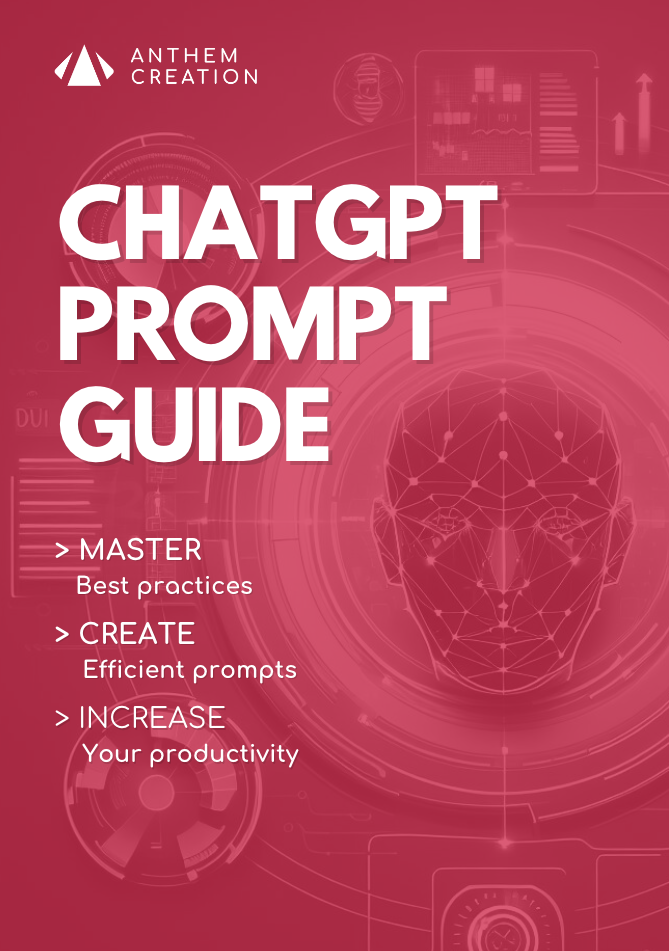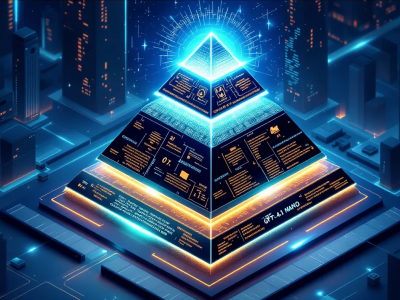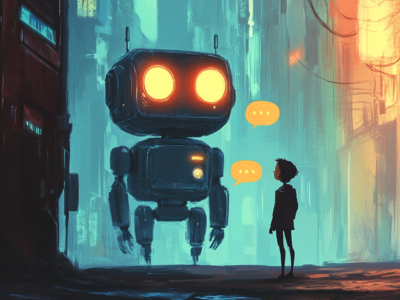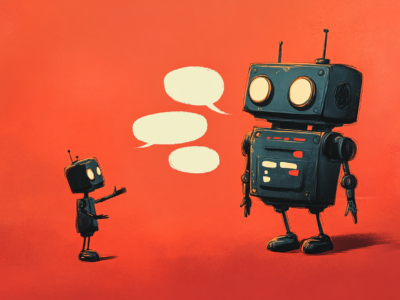In his landmark talk at TED2025, Sam Altman, CEO of OpenAI, set out a bold vision of artificial intelligence, revealing major technological advances while confronting the ethical and societal challenges that accompany this revolution.
Between technical breakthroughs, economic implications and governance issues, his talk maps out a complex roadmap for the future of AI.
The phenomenal expansion of ChatGPT and generative models
With 800 million monthly users reached by April 2025, ChatGPT confirms its status as the fastest adopted technology in history.
This exponential growth – one million new users in one hour at the launch of ChatGPT-4 – is underpinned by increasingly immersive features.
The Sora module, integrated into GPT-4, now makes it possible to generate realistic videos from simple text prompts.
In a live demonstration, Altman showed how Sora conceptualized a shock revelation at a TED event, generating coherent cinematic shots despite some lingering anatomical imperfections.
“This fusion of multimodal generation and semantic reasoning signals a major evolution: AI no longer simply processes data, it constructs mental representations.”
The era of autonomous AI agents: promises and perils
Altman has lifted the veil on Operator, a prototype AI agent capable of performing complex tasks autonomously.
Reserving restaurants, managing calendars, or even commercial negotiations: these agents “click around the Internet” by simulating human behavior. But this power comes with unprecedented risks.
“A good product is a safe product. No one will use our agents if they can’t trust them not to empty their bank account or delete their data.”
The technical challenge lies in creating real-time verification mechanisms, capable of interrupting harmful actions without impeding operational fluidity.
OpenAI is working on an “intention mapping” system, where the AI must make its action plan explicit before execution, enabling granularized human supervision.
The race to superintelligence: green light under control
In a bombshell admission, Altman confirmed that OpenAI is now devoting the bulk of its resources to the development of superintelligence – AI surpassing human capabilities in all cognitive domains.
The timeframe mentioned (“a few thousand days”) puts this horizon around 2030, much earlier than most academic forecasts.
This acceleration is based on a hybrid architecture combining:
- Modular transformers specialized by domain
- A meta-cognitive system orchestrating their collaboration
- Learning loops accelerated by quantum simulation
But Altman insists: this quest comes with an unprecedented governance framework. OpenAI advocates the creation of an international regulatory authority, inspired by the IAEA, capable of auditing advanced AI systems without stifling innovation.
The open source shift: democratization or fragmentation?
In a major strategic U-turn, OpenAI announces the forthcoming launch of a frontier open source model, surpassing current alternatives such as DeepSeek. This model, while falling short of the capabilities of OpenAI’s proprietary systems, will incorporate innovative mechanisms:
- Automated micropayments to data contributors
- A reputation system based on the quality of community fine-tunings
- Modular safeguards according to use cases
“Open source models have their place in the AI constellation. They stimulate distributed innovation while serving as a technological counterweight.”
Sectoral impacts: between disruption and co-creation
The creative economy has a front-row seat. Altman unveiled an experimental protocol for dynamic artist retribution.
When a user specifies “in the style of [artist]”, the system checks whether the user has opted-in, then triggering royalties proportional to usage.
This hybrid approach aims to reconcile algorithmic inspiration and moral rights.
In the professional sphere, hirable AI agents will enter the job market as early as 2025. Able to write reports, analyze data or even participate in meetings via avatar, they will operate as “virtual colleagues”.
But Altman warns: “Their tenfold productivity could destabilize markets if their deployment is not gradual.”
The ethical imperative: building collective wisdom
Faced with concerns about the concentration of power, Altman outlines a new form of algorithmic democracy:
“AI should help us make more informed decisions, not make them for us. Imagine an advisor who shows you the consequences of your choices through the prism of billions of human perspectives.”
This vision is realized in ChatGPT-5, which incorporates a “societal simulation” module for testing the impact of political or economic decisions in virtual environments populated by diverse AI agents.
Conclusion: navigating the Prometheus paradox
The roadmap unveiled by Altman sketches a future where AI will gradually become an extension of human cognition. But this unprecedented power requires an overhaul of institutions.
The proposal for multi-stakeholder governance – combining regulators, scientists and citizens – could mark the beginning of a new technological social contract.
“This technology will not stop at AGI. It will overtake us, and our duty is to ensure that it embodies the best of humanity.”
The challenge is no longer technical, but existential: how can we cultivate a collective wisdom to match our own creations?
AI NEWSLETTER
Stay on top of AI with our Newsletter
Every month, AI news and our latest articles, delivered straight to your inbox.

CHATGPT prompt guide (EDITION 2024)
Download our free PDF guide to crafting effective prompts with ChatGPT.
Designed for beginners, it provides you with the knowledge needed to structure your prompts and boost your productivity
With this ebook, you will:
✔ Master Best Practices
Understand how to structure your queries to get clear and precise answers.
✔ Create Effective Prompts
The rules for formulating your questions to receive the best possible responses.
✔ Boost Your Productivity
Simplify your daily tasks by leveraging ChatGPT’s features.
Similar posts
GPT-4.1: A game-changer for devs
Revealed on April 14, 2025 by OpenAI, the GPT-4.1 models are not just an update – they represent a quantum leap for generative artificial intelligence.Specifically designed to meet the needs …
GPT-4o Mini : AI performance, speed and economy
The GPT-4o-mini model is distinguished by several specific features that make it unique and particularly suitable for certain types of application. Here are the main features of GPT-4o-mini: Compact size …
GPT-4o vs. GPT-4o-mini: which AI model to choose?
OpenAI has recently introduced two new models that are generating a lot of interest: GPT-4o and GPT-4o-mini. Although these models share a common technological base, they are designed to meet …


